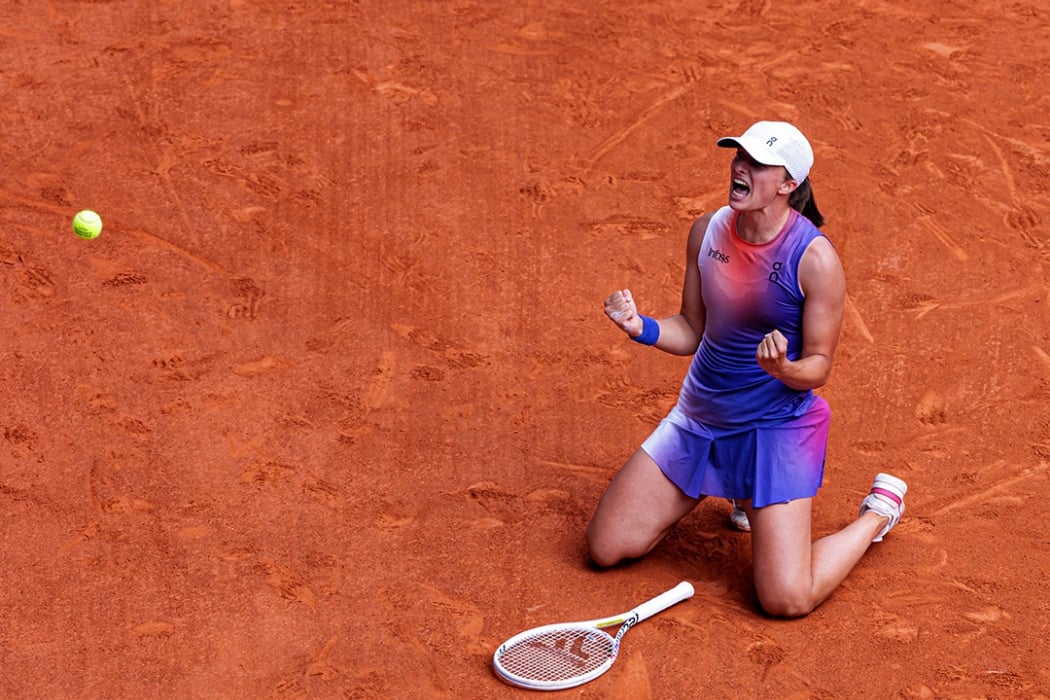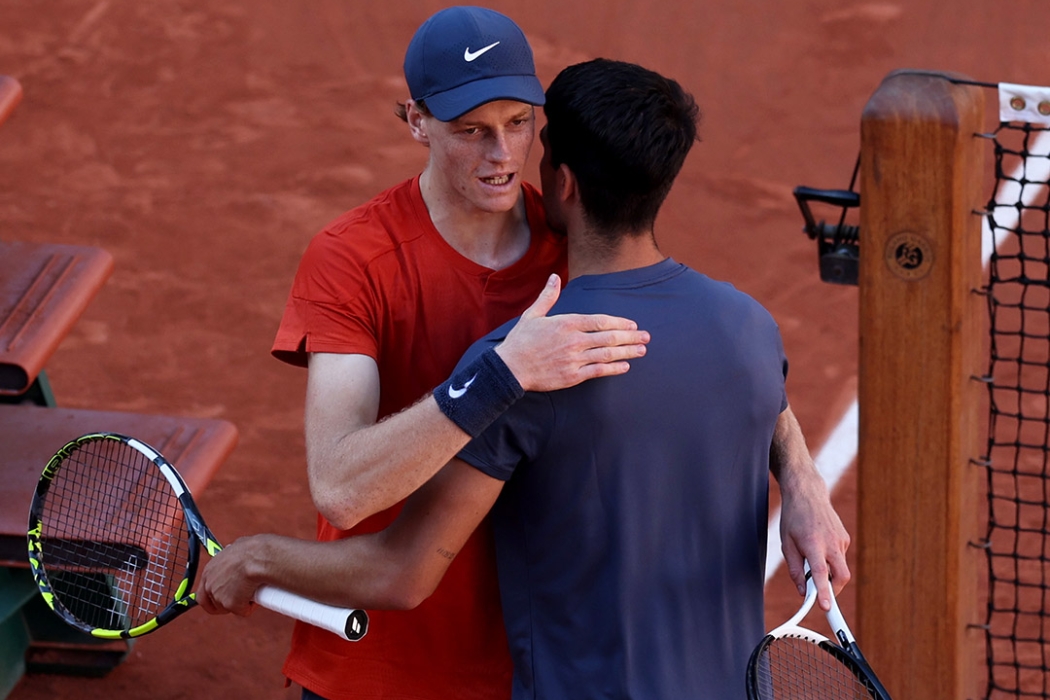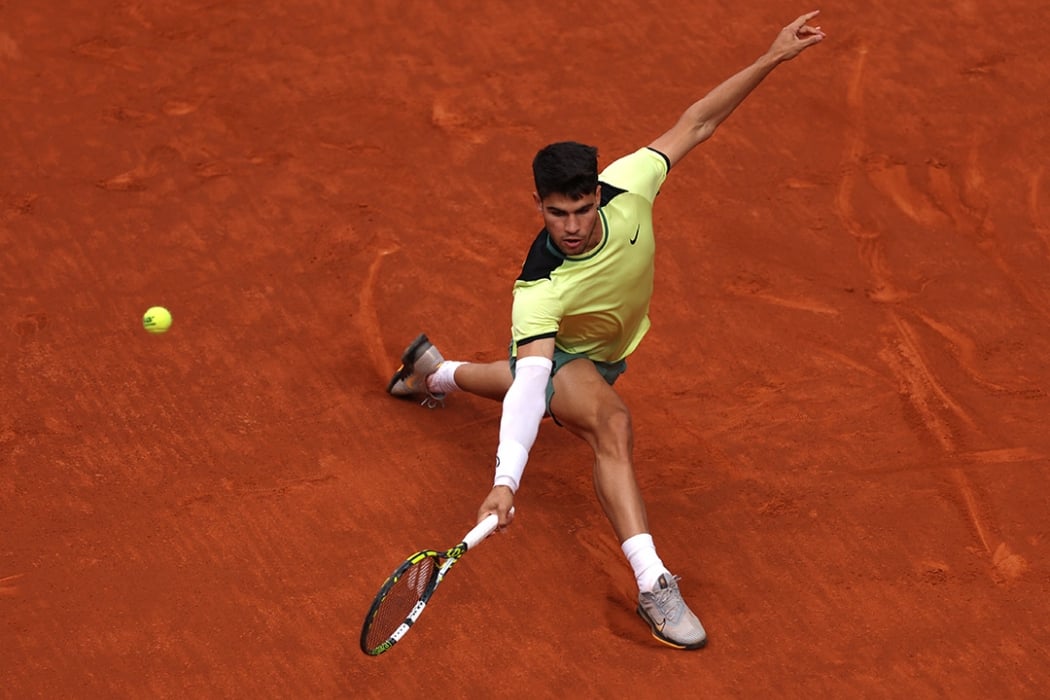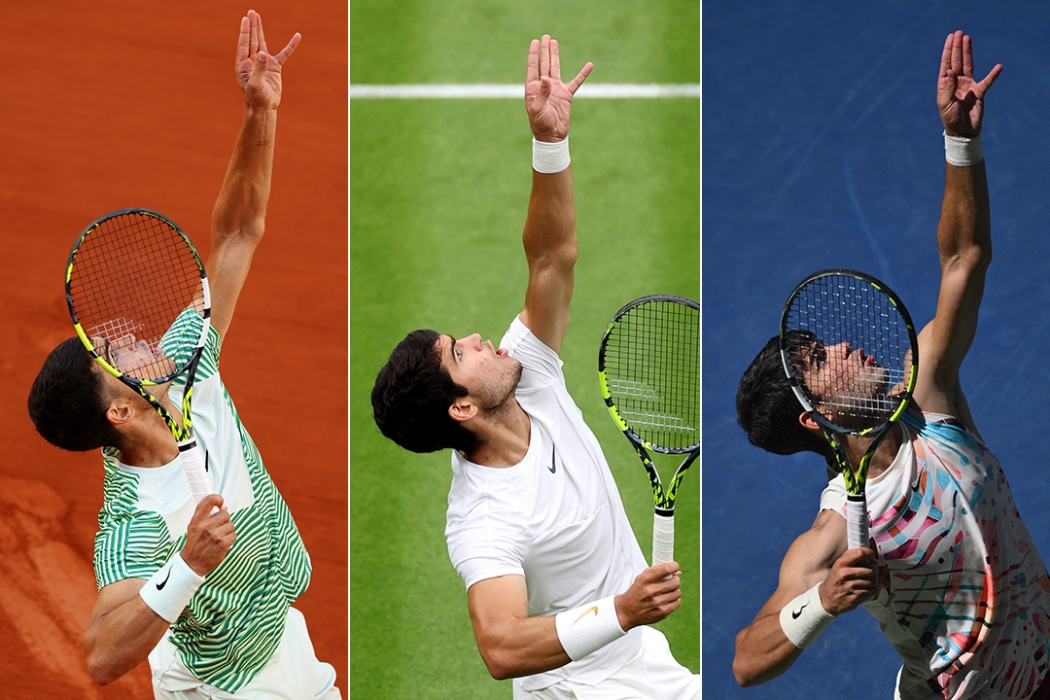When you’ve already scaled several significant tennis mountains, and done so at just 21 years old, it’s hard to know which achievement represents the highest peak.
Carlos Alcaraz was asked which of his feats generated the most pride, and initially, he struggled.
“That's a difficult question,” he replied.
Alcaraz had not long earlier completed a four-hour, 19-minute victory over Alexander Zverev to win Roland Garros, rebounding from two-sets-to-one down – plus the disappointment of blowing a 5-2 third-set lead – and overcoming physical issues to triumph 6-3 2-6 5-7 6-1 6-2.
Having played only 13 Grand Slam main draws, Alcaraz already owns three major titles on all three surfaces, things no man in the Open era has achieved so young, or so quickly.
Now the reigning titleholder at two of the four majors, he is three-quarters of the way to a career Grand Slam, and moves a step closer to reclaiming the world No.1 ranking.
“Obviously winning the US Open, when I reached for the first time the No.1 (both in 2022), something that I dream since I started playing tennis, getting my first Grand Slam. So it was pretty special,” began Alcaraz, who will return to world No.2.
ALCARAZ ARRIVES: US Open champion and youngest ever world No.1
ALCARAZ: Becoming a great, by dethroning a great, in epic Wimbledon final
“But honestly, the way that I won Wimbledon (last year), beating Novak Djokovic in five sets, has been a great achievement for me.
“Right now lifting the Roland Garros trophy, knowing everything that I have been through the last month with the injuries and all that stuff, I don't know. Probably this one … because everything that I have done the last month just to be ready for this tournament with my team.
“So I'm going to say this one is the most that I am proud about myself.”
Alcaraz’s clay-court season was decimated by a forearm injury. Forced to withdraw from Monte Carlo, Barcelona and Rome, he played just one lead-up event, losing in the quarterfinals in Madrid.
Despite some understandably patchy play in the first week, he managed to navigate his way to the semifinals with the loss of just one set.
The degree of difficulty rose dramatically when he confronted perhaps his two toughest match-ups in Jannik Sinner and Zverev.
Alcaraz entered his highly-anticipated semifinal against Sinner with the head-to-head locked at 4-4, and required five sets to defeat his young rival after trailing two-sets-to-one.
In the final, he faced a player who led their head-to-head series overall (5-4), at Slams (2-1), and at Roland Garros (1-0).
Again he trailed two-sets-to-one, and again he prevailed in five, despite needing treatment on his leg in the fourth set against Zverev, and experiencing cramps in both the semifinals and finals.
“I know that when I'm playing a fifth set you have to give everything and you have to give your heart. I mean, in those moments, it's where the top players give their best tennis,” said Alcaraz, now an extraordinary 11-1 in Grand Slam fifth sets.
“As I said many times, I wanted to be one of the best tennis players in the world, so I have to give an extra in those moments in the fifth set, I have to show the opponent that I am fresh, I'm like we are playing the first game of the match.
“So I think that works pretty well if the opponents see me that I'm moving well, I'm hitting the good shots, I'm finding good solutions. And of course, the mental strength play a great part on that moment.
“So I think that's why I have good success in the fifth sets, and of course you have to take that in the fifth set if you want to win the slams.
Zverev, still searching for a first major title, could only admire Alcaraz’s ability in this situation.
“We're both physically strong, but he's a beast. He's an animal, for sure,” Zverev said. “The intensity he plays tennis at is different to other people.”
With his victory, Alcaraz realises a dream held since he began playing tennis as a young child, and joins an illustrious list of Spaniards on the Roland Garros honour roll. Not just Rafael Nadal, the iconic 14-time winner, but also Andres Gimeno, Sergi Bruguera, Carlos Moya and Albert Costa, plus Alcaraz’s current coach Juan Carlos Ferrero, the 2003 victor.
Because his future appears so bright, tennis observers have always enjoyed speculating about what Alcaraz might achieve, such as the reporter who wondered if he ever contemplated Djokovic’s record haul of 24 major titles.
"He’s better than Federer, Nadal and Djokovic at 21, to me," American legend John McEnroe declared on Eurosport.
Australian pro Paul McNamee, notable for beating McEnroe at Roland Garros, predicted big things for the young Spaniard at this event.
"It was almost a miracle (Alcaraz) didn't win the French last year, and he will win it this year, unless something amazing happens,” McNamee said, prophetically, in April.
“He's that good, this guy on clay. This guy is the real deal. He's got it all.
"He could win 10 Roland Garroses.”
With a trademark smile, Alcaraz said for now he preferred to live in the present.
“Right now I can't think about it. I just want to keep going, and let's see how many Grand Slam (titles) I'm gonna take at the end of my career,” he said.
“Hopefully reach the 24, but right now I'm going to enjoy my third one, and let's see in the future.”
Twenty-four is a peak perhaps too high, and far away, to be conceivable any time soon.
Yet one thing looming closer on the horizon is a return to Australia.
In just seven months, Alcaraz has the opportunity to win a fourth major title and complete the career Grand Slam – something that does not seem beyond this driven, generational talent.



